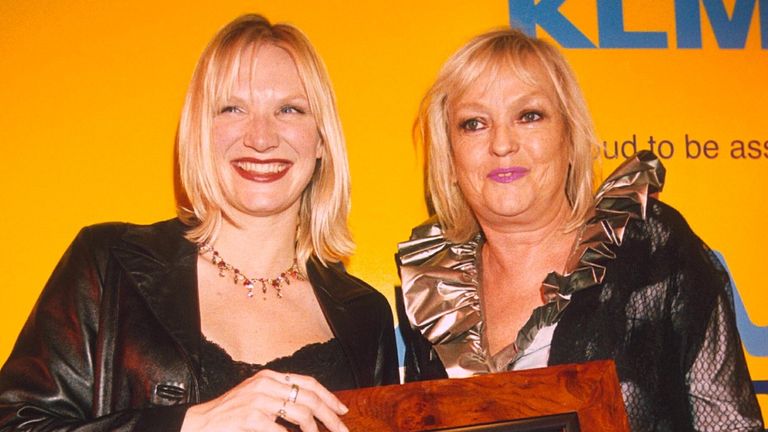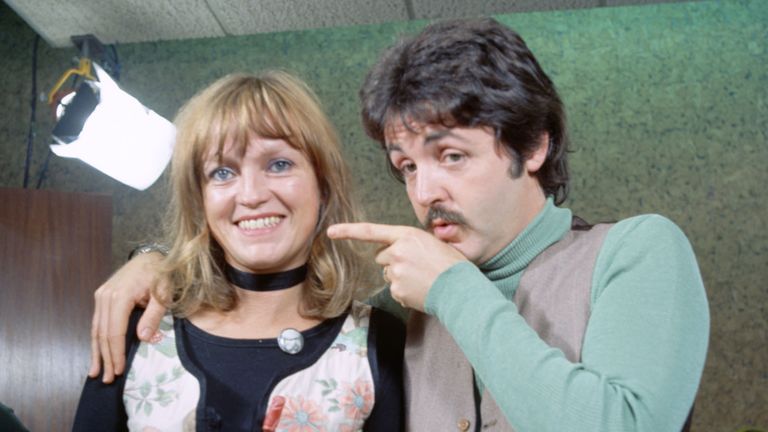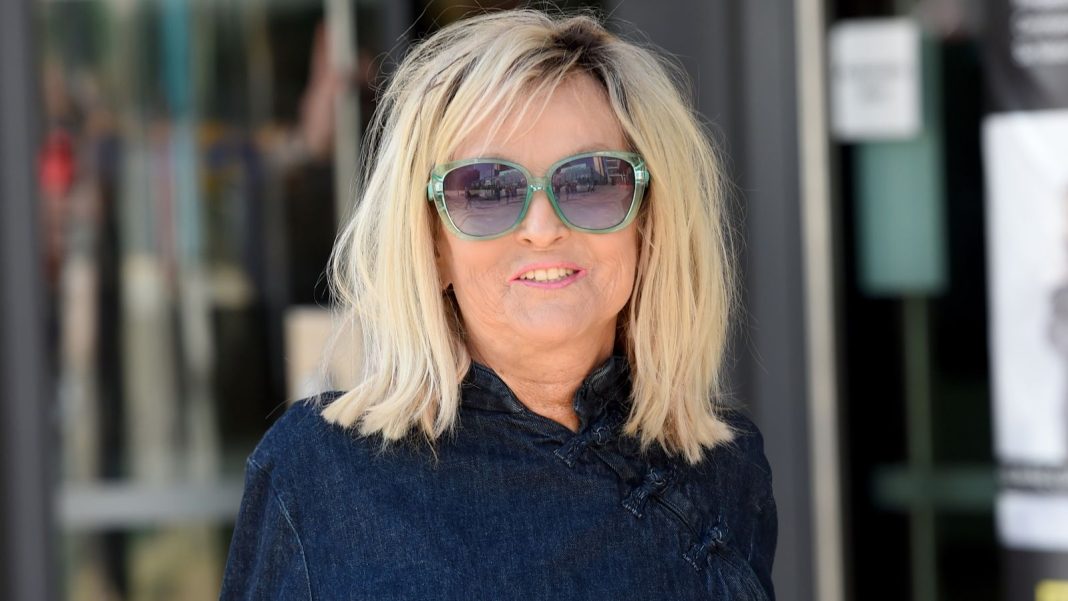“Our disc jockeys are husband substitutes,” Annie Nightingale was told when she knocked on Radio 1’s door following it’s launch in 1967. So why on Earth, they said, would a woman would want to join the airwaves?
“They were bewildered,” Nightingale told Desert Island Disc’s presenter Lauren Laverne, during her appearance on the much-loved radio show in 2020.
The male bosses were bewildered, but Nightingale was determined. Not only was she the first woman to join the station, in 1970 – remaining the only female host until Janice Long’s arrival 12 years later – she was also its longest-serving broadcaster, male or female, still on air until late last year with Annie Nightingale presents…

Nightingale paved the way for the likes of Jo Whiley (left)
She was a friend of The Beatles and David Bowie, but more importantly supported waves of popular music genres including prog rock, German electronica, punk, acid house and grime. Now highlighted following her death at 83, her influence on the world of British music culture cannot be overstated.
Even into her 80s, she was a champion of new music. Look at her Desert Island Discs choices and you see a mix including John Lennon and Bowie, yes, but also Billie Eilish and Beyonce, interspersed with Ethel Merman and Sid Vicious.
While most of us turn to the music of our formative years and early adulthood when we think of the songs that have defined our lives, Nightingale was constantly soaking up the new, always with an ear for those artists who might become stars. “You want to hear something you’ve never heard before,” she told Laverne, quoting the late John Peel. “Something that surprises you.”
Nightingale was born in Osterley, now part of outer west London but then part of Middlesex, on 1 April 1940. She started her career as a journalist in Brighton and first broadcast on the BBC in 1963 as a panellist on the TV show Juke Box Jury.

Nightingale was friends with Paul McCartney and The Beatles
It was in Brighton where she first interviewed The Beatles, and she went on to become a frequent guest at the band’s Apple Studios in London during the 1960s – a front-row seat to one of the most creative periods in British popular music.
She knew about John Lennon and Yoko Ono’s relationship before it was made public, but did not report what she knew would be a headline-making story as she did not want to break her bond of trust with the band.
And Paul McCartney even proposed to her on one occasion, according to the BBC. “Well, sort of yes,” she said when asked about it in an interview. “But I don’t think he was serious!”
This content is provided by Instagram, which may be using cookies and other technologies.
To show you this content, we need your permission to use cookies.
You can use the buttons below to amend your preferences to enable Instagram cookies or to allow those cookies just once.
You can change your settings at any time via the Privacy Options.
Unfortunately we have been unable to verify if you have consented to Instagram cookies.
To view this content you can use the button below to allow Instagram cookies for this session only.
‘I hate the R word’
Nightingale said she had not really experienced sexism until she was “rebuffed” by Radio 1.
But in 1969, a new controller arrived who wanted a female DJ, and asked The Beatles’ publicist for a recommendation. Her first show was a disaster technically, she said, but it was the start of an incredible career.
As a DJ she travelled the world, telling The Independent in 2009 that she had been “mugged in Cuba, drugged in Baghdad and bugged in Russia”.
She was also the first woman to present music show The Old Grey Whistle Test, from 1978, which featured live performance from artists as diverse as Bob Marley, Siouxsie And The Banshees, Roxy Music and Randy Newman.
She would say in interviews how she had no plans to slow down. “I hate the ‘R’ word: retire,” she told This Is Money just six months ago. “I don’t want to watch daytime TV.”
Nightingale received an MBE in 2002 and a CBE for services to radio in 2020, which she described as the “coolest big-up ever”.
Her memoir Hey Hi Hello was released in 2020 and offered a look back at her five decades at the forefront of popular music culture in Britain, coming after previous autobiographical books Chase The Fade: Music Memoirs And Memorabilia in 1981, and Wicked Speed in 1999.
A ‘trailblazer’ and ‘legend’
In 2021, a scholarship for female and non-binary music DJs was launched by Radio 1 and named after Nightingale, aiming to “celebrate and elevate talented women and non-binary people in the electronic music scene”.
She kept going, a role model who rallied against not just sexism but ageism, too, a much-loved favourite and authoritative voice on music into her 80s, on a station whose target audience is 15-29 year olds.
“She kept going, her very existence as an older woman playing underground music on Radio 1 was subversive,” said Annie Mac in her tribute.
For Mac and the other female presenters who followed in Nightingale’s footsteps – the likes of Zoe Ball, Jo Whiley, Sara Cox, Fearne Cotton and Clara Amfo – she was a “trailblazer”, a “legend”, “the coolest woman who ever graced the airwaves”; a woman who broke down doors during a time when the industry was pervaded by sexism, and held them open to break the misogyny down, little by little, over more than 50 years.
“Thank you, Annie,” said Laverne, sharing a photo of her conversation with Nightingale. “For opening the door and for showing us all what to do when we got through it.”







